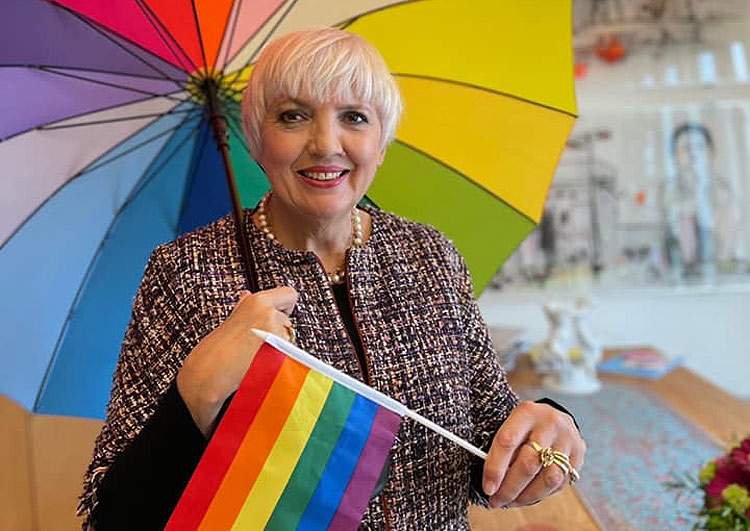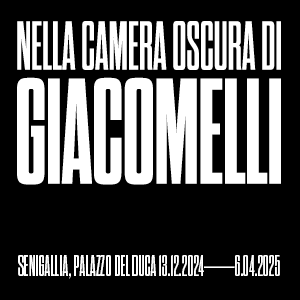Here's who Germany's new culture minister is and why she could start a revolution
The new German government led by new Chancellor Olaf Scholz, whose swearing-in is scheduled for Dec. 6, is taking shape: in recent hours it was announced that Claudia Roth will be the new culture minister, succeeding outgoing minister Monika Grütters. Born in Ulm in 1955, she is a member of the Greens, of which she served as president from 2001 to 2002 and from 2004 to 2013. Since October 2013 she has been vice president of the German Bundestag. Her education took place entirely in theater and music: she began to study theater at Ludwig Maximilians University in Munich, but did not complete her studies, and then began working in 1975 as an assistant at the Dortmund theater, later moving to Unna. Then, in 1982, she became manager of a well-known German rock band, Ton Steine Scherben, until 1985, when she began her involvement in politics, as spokeswoman for the Greens parliamentary group in the Bundestag.
In 1989, in the West German elections, Roth was elected for the first time as a member of parliament, again for the Greens, and since then she has held several posts, the most important of which, between 2003 and 2004, saw her as federal commissioner for Human Rights and Humanitarian Aid, when chancellor was Gerhard Schröder. Her experience in the future Scholz government will be her first as minister.
Roth is known for her activities (including parliamentary ones) on behalf of human rights, for being a strong campaigner for women and for the rights of the LGBTQ+ community, and also for her ... colorful outfits. She is seen as a polarizing figure in Germany, and as a result her appointment is causing much discussion, both positive and negative. The very appointment of a culture minister from the Greens has caused surprises. However, the orientation was already clear even before the appointment, reading the Koalitionsvertrag, or coalition pact between the majority parties (SPD, Greens, and FDP): “we want to open culture to everyone,” reads the introduction to the five pages on culture in the pact, “guaranteeing its diversity and freedom, regardless of organization or form of expression, from classical art to comics. We are convinced: cultural and artistic impulses can foster the restart of our society, inspire and create spaces for public debate. We are committed to having a strong cultural scene and creative industry. We support a non-discriminatory cultural and media policy. We want to anchor culture in its diversity as a national goal and support accessibility, diversity, gender equality and sustainability.”
How will this goal be implemented? Among the programmatic points are the goal of closing the gender pay gap, a commitment to have commissions and committees formed under the banner of equality and diversity, better social security for artists (among the goals is the minimum fee schedule), better protection for self-employed creatives, and reduction of bureaucracy. A chapter will be devoted to “Green Culture,” to steer the whole sector toward ecological solutions, and then again: digital culture, cooperation between center and territory, development of culture in rural areas and structurally weak regions, strengthening of public libraries (Sunday opening, for example, is in the program), culture for the suburbs, certainties for nonprofit journalism, support for independent publishing, support for national cinema, commitment to international cooperation and the return of objects and works of art to their countries where necessary, and much more. Ultimately, the goal of the new government will be to give Germany a more alternative, more equitable, and more diverse culture: given the assumptions, therefore, Roth could spark a revolution that could spread beyond national borders.
“I have two great eternal loves,” said the newly appointed minister: “the one for art and culture, and the one for our democracy. These two loves are inextricably linked. Culture is the mastic that holds us and our society together. Their value and significance for our cohesion go beyond all limits. And wherever democracy is under pressure, that is where despots first threaten the freedom of media, art and culture, artists, cultural workers and journalists. Then the music falls silent, then the televisions remain dark and the stages empty. Strengthening culture in its diversity and our cultural workers means strengthening, protecting and defending our democracy. I have worked for this since my days in the theater, and also in the heart of our democracy, Parliament, with passion, heart and temperament. Culture is the fundamental food of our democracy and our freedom. That is why the coalition treaty is also a strong signal for art and culture, colorful, diverse and contradictory, noisy and silent, for the vital pulse of our democracy.”
 |
| Here's who Germany's new culture minister is and why she could start a revolution |
Warning: the translation into English of the original Italian article was created using automatic tools. We undertake to review all articles, but we do not guarantee the total absence of inaccuracies in the translation due to the program. You can find the original by clicking on the ITA button. If you find any mistake,please contact us.





























